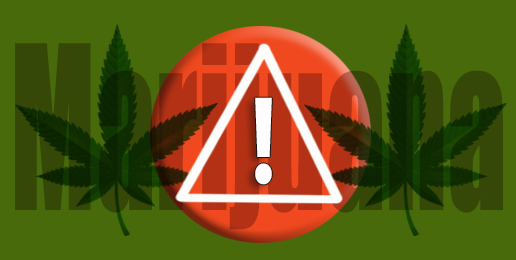
Last month, President Joe Biden announced that his administration approved downgrading the seriousness of marijuana despite overwhelming evidence that it is an addictive drug with no medical benefit and a high potential for abuse. “This is monumental,” Biden said in a video posted to X. “Today, my administration took a major step to reclassify marijuana from a Schedule I drug to a Schedule III drug.”
This was monumentally foolish. But more on that in a moment.
The U.S. Department of Justice has initiated a formal rulemaking process to move marijuana from Schedule I to Schedule III under the Controlled Substances Act (CSA). This process was prompted by President Biden’s 2022 directive examining marijuana’s federal legality. The proposal was published in the Federal Register on May 21, 2024, officially opening a 62-day public comment period that ends on July 22, 2024.
During this period, the public is encouraged to submit comments on the proposed rescheduling of marijuana. The comments can be submitted through the Federal Register website. The Drug Enforcement Administration (DEA) is particularly interested in gathering information on the medical uses of marijuana, data regarding public safety as relates to marijuana use, and other relevant information to help inform its decision.
Once comments are received and after any hearing, the DEA will review all evidence and generally respond to comments when publishing its final rule. Once published, the DEA’s final rule will not go into effect for 30 days, during which time aggrieved parties who submitted comments and can demonstrate they have standing can challenge the final rule in court. Smart Approaches to Marijuana (SAM) is mounting a fundraising effort to challenge marijuana’s Schedule III recommendation.
Take ACTION: Click HERE to express your opposition to Biden’s rescheduling of marijuana on the Federal Register.
MORE ACTION: Click HERE to send a message to the White House, U.S. Senators Dick Durbin and Tammy Duckworth, and your U.S. Representative to let them know you oppose any legislative effort to reschedule, decriminalize, or foster the use and sale of high-potency THC marijuana in our culture.
Dr. Karl Benzio, Board Certified Psychiatrist, points out:
Mental illness, addiction, psychological suffering, aggression, conflict and disconnection are at an all-time high. Making it easier to prescribe, sell, access, and use marijuana is not the answer. The reason it is a Schedule I substance is because it is dangerous and has no medicinal benefit. The adverse and dangerous effects have been well documented for decades. As the THC concentrations in present marijuana products have exponentially increased, danger and damage have also increased. Only substances with significant medicinal benefit to outweigh the dangers get moved to class III, IV, or V. Contrary to other medications in the schedule III class, marijuana has NOT significantly separated itself as the treatment of choice for any medical problem necessitating this proposed move.
Background
In a recent article published by the Washington Times, Kevin Sabet, a three-time White House drug policy adviser responded to this move, saying:
For those focused on science and medical efficacy, it’s a move that fails to recognize the growing body of scientific and medical data that shows today’s marijuana is more addictive and more harmful than that of previous generations. For pro-pot activists, the move comes up short of fully legalizing their wonder drug. It also does nothing to deal with criminal justice reform.
The move, however, has a clear winner: the cannabis industry. Companies such as Trulieve, Cresco, Canopy Growth and Cronos and their allies Big Tobacco and Wall Street will all see a boon from President Biden’s election-year “reform.”
Making marijuana a Schedule III drug would keep it illegal under federal law. Such a move would, however, permit marijuana companies to utilize Section 280E of the tax code, allowing the industry to deduct business, promotional and other expenses to advance drug sales. Companies would be permitted to advertise and promote kid-friendly THC-infused gummies, candies and drinks and deduct those costs as a business expense.
Last month, we reported that the Society for the Study of Addiction published a study that found more Americans are using marijuana daily than drinking alcohol, marking the first time that cannabis has outpaced alcohol in the United States.
Connect that data point with a European study released in March 2019 in The Lancet Psychiatry, which reported:
“People who smoked marijuana on a daily basis were three times more likely to be diagnosed with psychosis compared with people who never used the drug. For those who used high-potency marijuana daily, the risk jumped to nearly five times.”
That is why it is disheartening to have seen Fox News Channel and Special Report host Bret Baier recently run segment after segment “exploring” how beneficial marijuana could be medically and for seniors, even going so far as to ask, “Could marijuana replace prescription drugs in America?” It appears that they are trying to massage public opinion in a pro-pot direction just like other media outlets. But for what purpose? Investment in Big Marijuana or a possible avalanche of advertisement dollars to buttress the Big Pharma ad revenue streams? Could it ever be beneficial to increase the number of people addicted to a drug that can lead to mental illness and prevents them from thinking clearly and being able to make wise decisions? Hardly! And there’s a very good reason!
Be sober-minded; be watchful. Your adversary the devil
prowls around like a roaring lion, seeking someone to devour.
~1 Peter: 5:8~
Public opinion strongly favors legalization, and this seems to be increasing. In fact, a March 2024 Pew Research Center poll reports:
- An overwhelming share of U.S. adults (88%) say marijuana should be legal for medical or recreational use.
- Nearly six in ten Americans (57%) say marijuana should be legal for medical and recreational purposes, while roughly a third (32%) say marijuana should be legal for medical use only.
- Just 11% of Americans say the drug should not be legal at all.
We are willfully ignoring the writing on the wall. With the dramatic rise in marijuana use, we are already seeing an increase in psychosis, paranoia, suicide, brain damage in young people, traffic accidents, hyperemesis syndrome, and impaired memory, to name a few. In an article in Scientific American, Jesse Greenspan added to our concern, saying:
… recent studies have linked marijuana to adverse health outcomes involving the lungs, heart, brain and gonads. For example, heavy marijuana consumption seems to increase the risk of clogged arteries and heart failure, and it may impact male fertility. Smoking weed likewise can lead to chronic bronchitis and other respiratory ailments (although, unlike tobacco, it hasn’t been definitively tied to lung cancer).
Rescheduling this drug at the federal level is a stepping stone to full national legalization. This will only lead to more users, more addicts, more employee candidates failing drug tests, more intoxicated drivers, more workplace accidents, more disability, more homelessness, more mental illness, and more dependents on social welfare. Marijuana use among people 25 and under — those whose brains are still developing and are most susceptible to the harms of marijuana use — will increase dramatically.
The ramifications of ignoring the clear evidence and God’s waring are staggering.
My people are destroyed from lack of knowledge.
~Hosea 4:6~
Learn More:
- VIDEO: Drugs are Still Dangerous — Karl Benzio, MD
- VIDEO: The Dangers of Cannabis Use & Legalization — Patrick Kenneally
- Doctors Warn Cannabis can Cause Serious Health Hazards
- As seen in The Hill (advertisement) March 1, 2022 PDF
- Healthcare Professional Guidance on Cannabis: Health Tips to Know When Patients Use Marijuana
- VIDEO: Marijuana Guidance for Medical Providers – Dr. Roneet Lev
- VIDEO: The Dangerous Truth About Today’s Marijuana: High-Potency, Psychosis, and Suicide – Dr. Libby Stuyt
- VIDEO: Cannabis Use and the Incidence of Psychotic Disorders: What should we consider before prescribing medicinal cannabis? – Dr. Marta DiForti

























